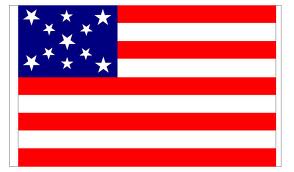Joseph Jones Reynolds

JOSEPH JONES REYNOLDS
Source: Unknown
Military History. – Cadet at the Military Academy, July 1, 1839, to July 1, 1843, when he was graduated and promoted in the Army to Bvt. Second Lieut., 4th Artillery, July 1, 1843. Served: in garrison, at Ft. Monroe, Va., and Carlisle, Pa., 1843-45; in Military Occupation of Texas, 1845-46; at the Military Academy, (Second Lieut., 3d Artillery, May 11, 1846) 1846-55, as Asst. Professor of Geography, History, and Ethics, Aug. 31, 1846, to Aug. 31, 1847, -- as Asst. Professor of Natural and Experimental Philosophy, (First Lieut., 3d Artillery, Mar. 3, 1847) Aug. 31, 1847, to Aug. 17, 1849, -- and as Principal Asst. Professor of Natural and Experimental Philosophy, Aug. 17, 1849, to July 1, 1855; and on frontier duty, at Ft. Washita, I. T., 1855-56. Resigned, Feb. 28, 1857.
Civil History. – Professor of Mechanics and Engineering, Washington University, St. Louis, Mo., 1856-60. Merchant, Lafayette, Ind., 1860-61. Degree of A. M. conferred by Wabash College, Ind., 1853. Military History. – Served during the Rebellion of the Seceding States, 1861-66: in command of Camp Morton, Indianapolis, Ind., Apr. to May, 1861; and in command of Cheat Mountain District, W. Va., (Colonel, 10th Indiana Volunteers, Apr. 27, 1861) (Brig.-General, Indiana Volunteers, May 10, 1861) (Brig.-General, U. S. Volunteers, May 17, 1861) July to Dec., 1861, being engaged in various Skirmishes, Reconnaissances, etc., and Action at Greenbrier River, Oct. 31, 1861. Resigned, Jan. 23, 1862.
Served without commission, in organizing Indiana Volunteers, Jan. to Nov. 1862, in Ohio and Kentucky; in the Campaign of 1862-63 (Army of the Cumberland), (Colonel, 75th Indiana Volunteers, Aug. 21, 1862) (Brig.-General, U. S. Volunteers, Sep. 17, 1862) being engaged in various Skirmishes and Action in Tennessee, (Major-General, U. S. Volunteers, Nov. 29, 1862) --Action at Hoover´s Gap, Ten., June 24, 1863, -- Battle of Chickamauga, Ga., Sep. 19-20, 1863, -- as Chief of Staff of the Army of the Cumberland, Oct. 10 to dec. 5, 1863, -- and Battle of Chattanooga, Ten., Nov. 23-25, 1863; in command of the Defenses of New Orleans, La., Jan. 6 to June 16, 1864; in command of 19th Army Corps, July 7, 1864, and organizing forces for the Capture of Mobile and Fts. Gaines and Morgan, Mobile harbor, Ala., June 16 to Aug. 2, 1864; in command on Mississippi River, from its mouth to Memphis, Ten., Oct. to dec., 1864, temporarily of Military Division of West Mississippi, Nov., 1864, -- and of the Department of Arkansas, Nov. 29, 1864, to Apr. 25, 1866 (7th Army Corps, Nov. 29, 1864, to Aug. 29, 1865); and on leave of absence, Apr. 25 to Sep. 1, 1866. Mustered Out of Service, Sep. 1,1866. Re-appointed in the United States Army as Colonel, 26th Infantry, July 28, 1866. Served: in command of the Sub-District of the Rio Grande, Tex., Jan. 12 to Sep. 21, 1867, -- of District of Texas, to Aug. 4, 1868, -- and (Bvt. Brig.-General, U. S. Army, Mar. 2, 1867, for Gallant and Meritorious Services at the Battle of Chickamauga, Ga.) (Bvt. Maj.-General, U. S. Army, Mar. 2, 1867, for Gallant and Meritorious Services at the Battle of Mission Ridge) of Fifth, Military District, Aug. 10 to dec. 22, 1868; as Asst. Commissioner of Freedmen´s Bureau for Texas, to Jan. 4, 1869; as Member of the Court of Inquiry at Washington, D. C., Jan.-Feb., 1869; in (Unassigned, Mar. 15, 1869) command of Fifth Military District, Apr. 8, 1869, to Apr. 16, 1870, -- and of (Assigned to 25th Infantry, Jan. 8, 1870) Department of Texas, Apr. 16, 1870, to Jan. 29, 1872, -- of regiment and Ft. (Transferred to 3d Cavalry, Dec. 15, 1870) McPherson, Neb., Mar. 9, 1872, to May 5, 1873, and of the District of the Republican, Mar. 9 to Sep. 30, 1872; as Member of Board of Visitors to the U. S. Naval Academy, July, 1873; in command of regiment and Ft. McPherson, Neb., to Feb. 26, 1874; as Member of Court of Inquiry at Washington, D. C., to May 25, 1874; in command of regiment and Ft. D. A. Russell, Wy., to Nov. 11, 1876, -- of District of South Platte, June, 1874, to Feb. 23, 1876, -- and of Big Horn Expedition to Apr. 2, 1876, -- as Witness before Committee of the U. S. House of Representatives, June 8 to July 14, 1876; on sick leave of absence, to June 25, 1877. Retired from Active Service, June 25, 1877, for Disability Contracted in the Line of Duty.
Source: Unknown
Joseph Jones Reynolds was born 4 January 1822 in Flemingsburg, Kentucky. At fifteen he moved to Lafayette, Indiana with his family. He briefly attended Wabash College in Crawfordsville, Indiana, before receiving an appointment to West Point. He graduated from the US Military Academy 10th in the class of 1843. He was initially assigned to the 4th US Artillery which did garrison duty in Virginia and Pennsylvania. In 1845 the 4th Artillery was sent to Texas to join occupation troops under Zachary Taylor. A year later Reynolds was assigned as an instructor of history and geography at West Point where he remained until 1855. In 1857 after a tour of duty in Indian Territory, Reynolds, then a 1st lieutenant in the 3rd US Artillery, resigned his commission and taught mechanics and engineering at Washington University in St. Louis, Missouri for the next 4 years. In 1860 he went into partnership in the grocery business in Lafayette with his brother. When the war started Reynolds returned to the military on 25 April 1861 as a colonel in the 10th Indiana militia. He was named Brigadier General of Indiana volunteers then on 14 June 1861 was commissioned a Brigadier General of volunteers in the US Army to rank from 17 May 1861. Interestingly there were 34 Brigadier Generals of volunteers whose date of rank was 17 May, the earliest date of rank given any Brigadier General. When the War Department ranked these 34 brigadiers by seniority Reynolds was listed 19th just after Ulysses Grant, a classmate of Reynolds. William T. Sherman was listed 7th, Fitz John Porter 5th. The others faded into obscurity. In September 1861 Reynolds was given command of the Cheat Mountain District and commanded a brigade under William S. Rosecrans at Cheat Mountain. Reynolds resigned from the army on 23 January 1862 to tend to his grocery business following the death of his brother. While back in Indiana he helped organize troops. He was again appointed Brigadier General of volunteers on 17 September 1862. He was promoted to major general of volunteers on 29 November 1862 and led a division during the Tullahoma campaign. He distinguished himself at Chickamauga commanding the 5th division of the XIV Corps. On 10 October 1863 he was named chief of staff of the Army of the Cumberland, then commanded by George H. Thomas and retained that position until after Chattanooga. On 25 January 1864 Reynolds was assigned to the Department of the Gulf and took over command of the defenses at New Orleans. On 7 July 1864 he was named commander of the XIX Corps and organized the campaign against Mobile, Alabama. On 22 December he was sent to Arkansas in command of the VII Corps and the department. He was mustered out of the volunteer service on 1 September 1866 but prior to that, in July 1866, he had returned to the regular army as a colonel in the 26th Infantry. He was brevetted brigadier and major general in the US Army on 2 March 1867. He was transferred to Texas and commanded the sub district of the Rio Grande. In 1870 he was transferred to the 3rd US Cavalry. Before the end of reconstruction in Texas Reynolds tried to get himself elected to the US Senate by the carpetbag Texas legislature. His election was, however, successfully contested and Reynolds never served in the Senate. The end of military occupation ended his political aspirations. He commanded various places in Nebraska and Wyoming. On 17 March 1876 he attacked and captured a Sioux village on the Powder River in Montana. He retreated for no apparent reason leaving behind his dead and a wounded private who was tortured to death. Although the findings of a court marshal were overturned Reynolds resigned on 25 June 1877. He retired to Washington, DC where he died on 25 February 1899.
Source: Tillman, Stephen F. The Rennolds, Reynolds family of England & Va, 1530-1948. Washington DC: Unknown publisher, 1948 p 39.
#367.7 - Joseph Jones Reynolds, son of Edward (367) and Sarah (Longley) Reynolds, was born 1-4-1822 in Flemingsburg, KY and died 2-25-1899 Washington, DC. He was commissioned in the regular army and reached the grade of Major General at the time of his retirement. General Reynolds married 12-3-1846 Mary Elizabeh Bainbridge (b. 11-19-1827).
Issue: Sarah b. 10-7-1847
Bainbridge b. 9-15-1849 who died unmarried
Alfred b. 9-7-1853
Kate b. 3-24-1859
Euphan b. 11-4-1868 died 7-28-1869
Source: TourgOee, Albion Winegar. The Story of a Thousand. Buffallo: S. McGerald & Son, 1896 p 161
(a picture of Reynolds and information on his CW company)
A little bio at bottom of this page - Jospeh Jones Reynolds was born in Indiana in 1822; graduated at West Point class of 1844; was assistant professor in the Military Academy from 1845-1856; Professor Mechanics in Washington University, St. Louis until outbreak of war. He was appointed a Major-General of Volunteers and assigned to the 5th Division of the Army of the Cumberland on its organization under General Rosecrans, in the fall of 1862; which command he held until after the battle of Chickmauga. When General Thomas succeeded to the chief command, General Reynolds was appointed Chief of Staff. In the reorganization of the army by General Grant he was thrown out by questions of rank and was assigned to command in the department of the Gul. In 1864-65 he commanded the Dept. of Arkansas. He was greatly beloved by the men of his command. His memory is held in special reverence by the survivors of the Thousand of whom he spoke in terms of especial praise in his report of the battle of chickamauga. In some manner, due probably in his promotion to Chief of Staff about this time, the regimental reports of the 2nd Brigade in that battle were lost after reaching his hands. It is quite possible that they may yet be found among the records of the Dept. of the Cumberland.
p 162 - a bit/piece about him here too on a person level - General Reynolds, who commanded the division was of an unassuming type. Quiet, slender, scholarly, he was a model of soldierly courtesy, which embraced the enlisted man as well as the wearer of shoulder-straps. He never returened a salute carelessly, as if he felt it a personal greeting, which it gave him pleasure to acknowledge. Though a strict disciplinarian, he was easily approachable and no commander ever had a more thoughtful care for the welfare of his men.
NOTE: Although I found several references to this man, I never found the two on the top of this page - sorry, if anyone finds out, do let me know :) KBZ

